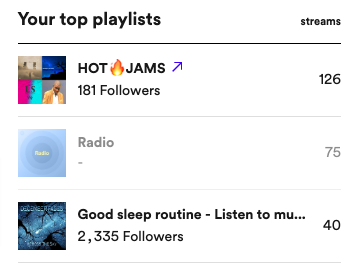
Independent artists know how difficult it is to have their name or work mentioned in articles or publications about music. You will have an even harder time getting a full article published about your work.
There is no doubt that building your artistic identity online is not an easy task. However, it is changing, and many platforms are becoming available, designed for independent artists, regardless of whether you are a professional or just starting out.
The way music is distributed worldwide has changed a lot, for the better. Artists of all backgrounds now have access to platforms such as PopHits.Co, which does not care about the number of likes or followers they have, they invest in real talent! While is crucial that artists still have to build their identity as a brand, as a proper business.
Creating an artistic identity online, in the Metaverse, has become increasingly easy today. There are several tools out there that help you do this, including MusoSoup, which connects you with writers and curators in a very intuitive way. Nevertheless, while designing and delivering an advertising campaign for promoting your work, you should be responsible and recognize the importance of every professional.

It doesn’t matter whether you are working with mainstream journalists, independent writers or curators. Each of them is extremely valuable, and you will understand why if you keep reading.
Despite the fact that MusoSoup is the best and most democratic platform, many artists are using it in the wrong way… expecting results that will never be possible on any other platform. Incorrect use of it leads to complaints. Instead of fighting against platforms, curators, and writers, it is time to learn how to work with them.
Rather than working for the artist, Musosoup writers, bloggers, and curators present opportunities for the artist to be featured.
Essentially, the writer owns the communication channel and charges a minimum fee for writing, not to function as a “boost” button to increase the audience of the artist’s music in a short time. In order to achieve this boosting effect, there are paid advertising platforms that cost above £300. That’s not the purpose of MusoSoup!

MusoSoup works to get your music mentioned by writers and curators online, as well as to build your artistic identity online by publishing reviews about you. Find out below why independent artists should take advantage of it.
It’s important to look at a short review or blog post about your music from a different perspective. A blog post provides long-term exposure, which will result in a better ranking for the artist’s name on search engines.
A good example is if a person searches for an “indie rock band from Manchester” and your band only has a single review or blog post about them. Therefore, they won’t be listed in the top five search results because only one blog mentions them.
However, that other band paid about £10 through MusoSoup to have at least one short review about them published every month. Probably by the end of the year, they will have about 12 music news posts featuring their work.

These are the ones that will appear first in search results. As a result, having a greater chance of being discovered.
You can build your artistic identity online by using cheap short reviews from MusoSoup writers and curators, but your artistic brand or identity won’t be considered relevant by the algorithms if you don’t follow all these steps constantly.
It is important to point out one detail: being mentioned in many music news posts will not lead to many listeners in the short term. You won’t expect it… but you will be able to exist online as a result of it.
For those searching for new artists from a particular music genre, geographic area, topic, or something similar, you do not exist if your name is not mentioned anywhere.
When artists are not famous, they should not expect to be found only by their names in search results. They will be found by search terms such as “new indie rock band in Brighton”, or even something more generic as “artists from the dream pop scene”.
When an artist publishes short reviews every month, he will accumulate a collection of articles after a year, making his name more relevant than those who only mention themselves on social media. The first step is to realize that you need to collaborate with curators and writers, not compete with them.
The artist or band doing a campaign on MusoSoup and having short reviews published about their music will also be available for segmented searches by genre, city, date of release, music features, music topic, kind of performance, and other terms above their name.
In the Metaverse, this is the best way to establish an artistic identity!

Is My Music Easy to Find Online?
A third advantage of having multiple music news posts about you or your career published throughout the year is that the Google algorithm will detect and automatically consider you to be an artist. That’s why music news portals like TopMusic.News, RapStar.News and PopHits.News are so important to help spread the artist’s name in the metaverse and create an artistic identity online, as well as through blogs and specialised websites.
Whenever someone searches for something about you, if your name is relevant and is linked to many articles, Google provides a panel with direct links to your songs, social networks, music videos, and information about your career, and also categorizes your name as “Music Artist”. The value of this is immeasurable. It is at this point that you have reached the right destination.

When you only have influencers shouting about you with posts on social networks, nobody will find you online by searching for anything other than your name. There is a probability that you will only be found by people inside one social network, and usually, they won’t follow you just because they found you, as posts about you on social networks aren’t searchable by specific terms. In other words, the data is not segmented, which is the main problem.
There is something different about Google. By presenting news about you to people who are looking for musicians like you at that time, the likelihood of you being heard, followed, and liked is greater. In other words, artists must recognize that curators play a significant role at a time when, for grassroots artists, being featured by a journalist is inaccessible, and that’s true for independent artists with more experience as well.
The first thing we need to do is build our artistic identity because today you don’t exist if you can’t be found online. Welcome to the Metaverse and WEB3, let’s give hands to curators and independent writers through democratic tools like MusoSoup.
We are now going to dive into the world of playlists. I think they are an excellent avenue for independent artists, but you need to pay attention, change your perspective, and keep reading.

How Can I Get My Music on Playlists?
The following information is provided to you as a matter of interest, as we believe it is important for artistic identity development.
In the process of building their artistic identities online, artists often make the mistake of becoming too attached to numbers regarding playlists too. As an example, let’s look at what it looks like when we attach it to numbers and see it from the perspective of curators first.
If you are an independent artist just starting out or if you haven’t developed very well your social networks, think about how to grow your online audience, but question yourself: How do curators come across my music?
I’m sure you already know how difficult it is to have big and famous playlisters or curators to invite you to have your music promoted in their playlists, if you haven’t paid a good amount of money. In these situations, artists have to change their perspectives and work directly with the maximum number of independent curators rather than reject their work or select them based on numbers, followers, and likes; because that’s exactly what you don’t have to offer them too.
So, act smartly, spreading your music through the maximum number of small playlists and curators is the best strategy if you are starting out or don’t have a significant audience on your own social networks. Even if a project is new, all playlists are new as well, take advantage of that. This is a completely different approach to spreading your name and music.

What Are The Benefits of Small Curators and Playlisters Using My Music?
The work of small playlisters and curators from platforms like MusoSoup is not based on fans or likes. They choose artists based on their work and talent, not on how many fans and likes the artist can achieve on social media.
It would be reasonable for them to work only with artists who are willing to share their playlists and articles with large audiences, but this would actually eliminate your chances of having your music spread since you don’t have a huge audience to offer to curators. In any case, let’s understand why they are so important for career development.
Small curators and playlisters organise their playlists based on the genres of music that they are interested in, incorporate them into blog posts and articles about music, and promote these playlists and articles through social media or digital advertising.
There are many factors that make it worthwhile for your music to be included in their playlists, regardless the audience of it. The most important is the process of spreading information, especially your name and your song title.
Curators And Playlisters Make Your Music Discoverable
When small playlisters and curators use your music, in this process, the algorithms embedded in platforms like Spotify are immediately able to understand the fact that your music is part of numerous playlists, and is spreading satisfactorily.
As a result, the platform’s system of recommendation automatically considers your music to be relevant, so it recommends your music to people looking for that specific genre of music that your songs fit into, and in the moment they create their own playlists similarly. It’s what makes your chances of being discovered even greater. This is priceless!
In addition to this process triggering the algorithm to consider your song relevant, it often triggers the algorithm to consider you as an artist to be important, as well as recommending other songs from your portfolio to users searching for your style of music.
You can see how the system works in this graphic from the official Spotify For Artists app:

Spotify For Artists has an entire section dedicated to showing how many playlists include your songs. Are you able to see how Spotify knows your music isn’t being added?
The algorithm doesn’t know about your music if no one adds it. You can also see that the playlist with 2.335 followers only brought 40 streams for that song, and the playlist with only 181 followers brought three times as many streams.
It’s evident that playlisters and curators with a large following and likes will never guarantee their audience will like and listen to your song. In contrast, smaller playlists are much more segmented, which is of great benefit to you. The secret is actually spreading your music.
Owners of famous playlists, with many followers, usually only include songs by high-profile artists or by indie artists who pay a lot of money to be featured in their playlists. This is making it difficult for independent artists to be discovered
This is why platforms like MusoSoup offer free playlists, with smaller and bigger followings, that influence algorithms to recommend your music, not just when people search for your music genre, but also when they search for well-known artists in similar music genres.
This is the time when your music may be recommended and associated by the algorithm with the music of artists who have a more established career, making the possibility of discovery more possible. Take advantage of that and collaborate with small curators and playlisters such as those at MusoSoup.
When we don’t have many opportunities, we create our own!
Will Lisil – Music Producer and CEO at PopHits.Co






